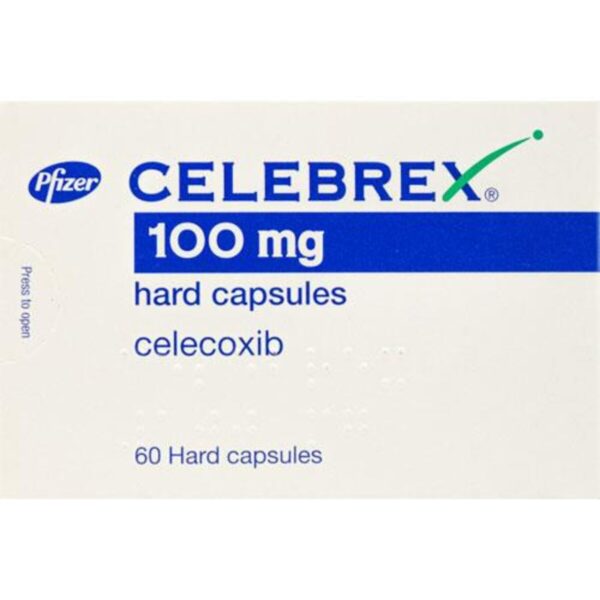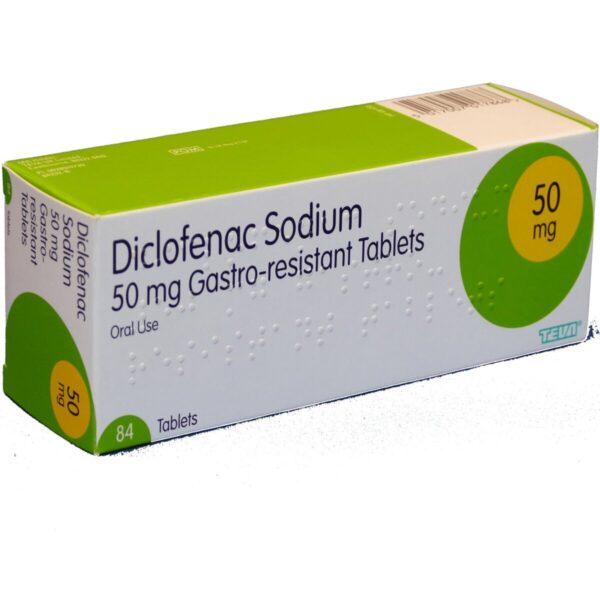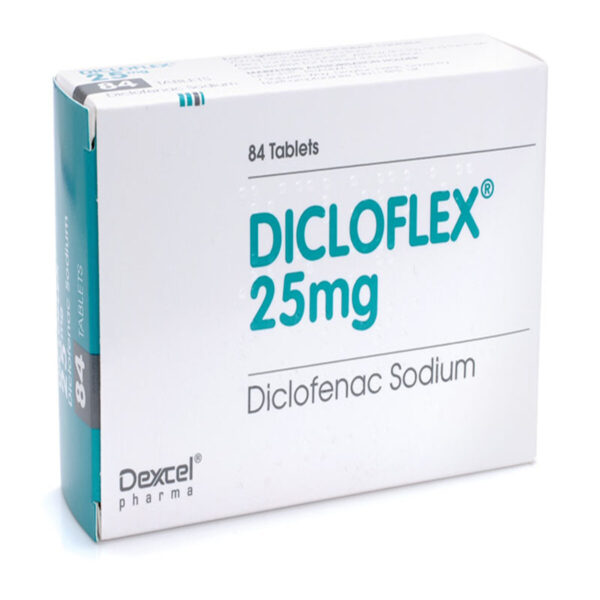- Description
- Additional Information
- Brand
- How To Use
- Product Details
- Side Effects
- Ingredients
- How to Store
- Patient Information leaflet
- Reviews (0)
- Questions & Answers
Mefenamic Acid 500mg Tablets, 28 Tablets
Mefenamic Acid 500mg Tablets provide patients with a reliable and professional way to combat menstrual pain, muscular pains, and fever. Containing the active substance mefenamic acid, this drug belongs to a highly effective class of drugs known as non-steroidal anti-inflammatory medicines (NSAIDs). This product is an ideal choice for those looking for a simple yet effective means of treating mild to moderate pain. Backed by clinical manufacturer standards, Mefenamic Acid Tablets have recently been approved as one of the most reliable and trusted products available on the market. So whether you’re suffering from menstrual cramps or muscle aches, our Mefenamic Acid Tablets provide you with quick relief so that you can get back to your daily activities in no time!
Mefenamic acid can be used to treat dogs and cats when prescribed by a vet
Mefenamic Acid 500mg Tablets Reviews
After using Loperamide 2mg Capsule, it’s helpful to let others know about your experience. Reviews of an item help other users know that medicines received have helped the condition it is claimed for, how well the treatment worked or any issues to be aware of. We invite our users to leave a review of both their treatment and of the service provided. Click on the reviews tab to see if there has been feedback on this item.
What is the price of Mefenamic Acid 500mg Tablets?
The price of Mefenamic Acid 500mg Tablets is £26.50
Where can you buy Mefenamic Acid 500mg Tablets?
You can buy Mefenamic Acid 500mg Tablets at Dock Pharmacy Essex UK, UK Online Pharmacy.
Can you buy Mefenamic Acid 500mg Tablets Over the counter?
Mefenamic Acid 500mg Tablets is not available to buy over the counter. You need a prescription to buy Mefenamic Acid 500mg Tablets
| Brand | |
|---|---|
Brand
Mefenamic Acid
How To Use
How to take Mefenamic Acid Tablets
Always take this medicine exactly as your doctor or pharmacist has told you.
Check with your doctor or pharmacist if you are not sure.
Mefenamic Acid Tablets should preferably be taken with or after food.
Do not drink alcohol whilst taking Mefenamic Acid Tablets.
Alcohol and smoking may irritate the stomach and make some side effects worse.
Adults and the elderly The usual dose is one tablet, three times a day.
Elderly patients are at a higher risk of side effects and should take the lowest effective dose, for the shortest possible time.
Your doctor may perform additional monitoring.
Use in children
Mefenamic Acid Tablets are not suitable for children under the age of 12 years.
Product Details
What you need to know before you take Mefenamic Acid Tablets
Do not take Mefenamic Acid Tablets: · if you are allergic (hypersensitive) to mefenamic acid or any of the other ingredients of this medicine (listed in section 6 “Contents of the pack and other information”); · if you are allergic to any other NSAIDs such as aspirin, ibuprofen or celecoxib; · if you have an inflammatory bowel disease such as Crohn’s disease or ulcerative colitis; · if you have a history of gastrointestinal conditions such as bleeding in the stomach, peptic ulcer, gastritis; · if you have severe heart, liver or kidney failure; · if you are in the last trimester of pregnancy (more than 6 months pregnant); · if you have had heart bypass surgery. Warnings and precautions Talk to your doctor or pharmacist before taking Mefenamic Acid Tablets if: · you are taking any other NSAIDs such as ibuprofen, diclofenac; · you are taking any other anti-inflammatory medicines, including steroids such as prednisolone; · you are taking medicines such as warfarin or clopidogrel, which are used to thin the blood; · you are taking selective serotonin medicines such as paroxetine, which are antidepressants; · you have liver or kidney problems, as your doctor may monitor their function before and during treatment; · you are trying to become pregnant (see section “Fertility”); · you are elderly (see section 3 “How to take Mefenamic Acid Tablets”); · previously taking painkillers such as aspirin have given you an upset stomach, or you have a history of stomach or digestive tract problems. Patients taking mefenamic acid can experience bleeding in the stomach or gut; · you are going to have a major operation or have a bleeding disorder, as mefenamic acid can affect how your blood clots (it can make you bleed more or for longer periods of time); · you have or have a history of asthma, as it may cause difficulties in breathing; · you have epilepsy; · you have a disorder of the connective tissue, such as Systemic Lupus Erythematosus (SLE); · you are dehydrated with symptoms of thirst, dry mouth, dry skin, dark urine, headache; · you have problems with your heart, have previously had a stroke, or you think you may be at risk of these conditions (e.g. if you have diabetes, high blood pressure, are a smoker, or have high cholesterol). Your doctor may carry out additional monitoring. Medicines such as Mefenamic Acid Tablets may be associated with a small increased risk of stroke or heart attack. Any such risk is more associated with high doses, and prolonged treatment. Do not exceed the recommended dose or treatment duration. Other medicines and Mefenamic Acid Tablets Tell your doctor or pharmacist if you are taking, have recently taken or might take any other medicines. This includes any herbal medicines and medicines obtained without a prescription. Mefenamic Acid Tablets may affect other medicines and other medicines, in turn, may affect how well Mefenamic Acid Tablets work. Tell your doctor or pharmacist if you are taking: · medicines which can increase the chances of bleeding in the stomach or gut, or increase the risk of getting ulcers such as: – medicines used to treat arthritis and inflammation (corticosteroids); – medicines used to thin the blood (anti-platelet drugs such as warfarin, aspirin, clopidogrel); – anti-depressant medicines such as paroxetine, which are selective serotonin re- uptake inhibitors (SSRIs); – medicines which are anti-inflammatory, such as diclofenac, celecoxib; · aspirin, used in some heart conditions to stop your blood from clotting; · medicines used to treat high blood pressure, such as atenolol, ramipril, valsartan; · water tablets (diuretics), or medicines for the heart, such as digoxin, diltiazem, sotalol; · medicines used to treat diabetes, such as glibenclamide, glipizide; · medicines used to suppress the immune system, such as ciclosporin, methotrexate, tacrolimus; · medicines used to treat some types of depression, and mood swings, such as lithium; · a medicine called mifepristone which has been taken within the last 12 days. This is usually prescribed via hospitals; · quinolone or aminoglycoside antibiotics, used to treat infections; · zidovudine, used for HIV; · probenecid, used in special situations to protect the kidneys; · medicines which bind to protein in the blood (check with your pharmacist). Blood tests During treatment, your doctor may test your blood. Pregnancy, breast-feeding and fertility If you are pregnant or breast-feeding, think you may be pregnant or are planning to have a baby, ask your doctor or pharmacist for advice before taking any medicine. Pregnancy Mefenamic acid passes to your unborn baby. During the first six months of pregnancy, it is not known how mefenamic acid can affect your unborn baby. Your doctor or pharmacist will help you decide whether or not to take these tablets in the first six months of pregnancy. Mefenamic Acid Tablets should not be taken in the last three months of pregnancy, as this may prolong its duration and delay the onset of labour. This could also lead to bleeding in the mother or unborn baby. Breast-feeding Mefenamic acid passes into breast milk and can affect the baby. You should not breast-feed whilst taking these tablets, unless advised by your doctor. Fertility If you are trying to become pregnant, do not take these tablets as it may make getting pregnant more difficult. Speak to your doctor if you are trying to become pregnant or are having difficulties getting pregnant. Driving and using machines Mefenamic Acid Tablets may cause drowsiness, fatigue, dizziness or may affect your vision. If you experience any of these symptoms, you should not drive or operate machinery, or perform any tasks which may require you to be alert. Mefenamic Acid Tablets contain lactose and sodium · If you have been told by your doctor you have an intolerance to some sugars, contact your doctor before taking this medicinal product. · This medicine contains less than 1 mmol sodium (23 mg) per tablet, that is to say essentially ‘sodium-free’.
Side Effects
Possible side effects
Like all medicines, this medicine can cause side effects, although not everybody gets them. Stop taking Mefenamic Acid Tablets if you experience any of the following reactions, and seek medical help immediately: Allergic reactions: · difficulty in swallowing or breathing, swelling of the face, lips, throat or tongue; · severe skin itching with a red rash or raised bumps; · blistering of the eyes, mouth, or genital area, with patch areas of peeling skin or rash; Other reactions: · diarrhoea; · passing blood in your faeces (stools/motions), or tar-like black faeces; · vomiting blood or dark particles which look like coffee grounds; Seek immediate medical attention if you have any of the below symptoms: · indigestion or heartburn, pain in your stomach or abdominal area, feeling sick (nausea), vomiting; · unusual bleeding or bruising, such as nose bleeds, pinpoint red spots on the skin, purple bruise-like rash in the mouth or on the skin; · feeling tired, breathless or looking pale, which may be signs of anaemia; · fever, sore throat, mouth ulcers, repeated or persistent infections, which may be signs of low levels of white blood cells; · seizures (fits); · headache, nausea, vomiting, tiredness or muscle cramps which may be signs of low sodium levels; · sudden headache, stiff neck, fever, sensitivity to bright lights, drowsiness, muscle pain, with or without rash; · fever, rash, nausea, aches or pains, changes in amount of urine passed, passing red urine, passing urine at night, which may be signs of changes in your kidneys; · sudden loss of or blurred vision, loss of colour vision, eye pain which worsens on movement of the eye; · headache, especially on waking in the morning, which may be due to high blood pressure; · pain behind the ribs which spreads towards the back and worse when lying down, nausea, vomiting, fever, which may be due to inflammation of your pancreas; · yellowing of the eyes or skin, pale faeces and dark urine, unexplained and persistent nausea, stomach problems, appetite loss, or unusual tiredness, which may be due to changes in your liver. Tell your doctor if you get any of the following side effects: · vertigo (head spinning); · fatty faeces; · sweating; · palpitations (rapid heartbeat); · mental confusion; · appetite loss; · constipation or bloating; · blurred vision, eye irritation; · feeling ill (malaise); · tinnitus (buzzing or ringing in the ears); · tingling or numbness of the hands or feet; · if you have diabetes, sudden and poor blood sugar control – your doctor or pharmacist can help measure your blood sugar levels; · asthma, or asthma which may be worse than usual; · swelling of your hands or around your ankles/feet; · mouth pain, which may show as pain or ulcers of the tongue, cheeks, lips, throat or gums; · dizziness, drowsiness, feeling lethargic and tired; · symptoms of low blood pressure, e.g. light-headedness; · reactions to the sun such as red, painful or swollen skin. Whilst taking mefenamic acid, do not use a sun bed, sunbathe or expose your skin to artificial ultraviolet (UV) light; · depression; · inability to sleep; · hallucinations; · nervousness; · ear pain. Medicines such as Mefenamic Acid Tablets may be associated with a small increased risk of stroke or heart attack. (see section 2 “Warnings and Precautions”). Urine tests: Tell the doctor before having a urine test, as this medicine may affect the results. Reporting of side effects If you get any side effects, talk to your doctor or pharmacist. This includes any possible side effects not listed in this leaflet. You can also report side effects directly via the Yellow Card Scheme at: www.mhra.gov.uk/yellowcard or search for MHRA Yellow Card in the Google Play or Apple App Store. By reporting side effects, you can help provide more information on the safety of this medicine.
Ingredients
What Mefenamic Acid film-coated Tablets contain: –
The active substance is mefenamic acid.
Each tablet contains 500 mg mefenamic acid. –
The other ingredients are lactose monohydrate, pregelatinised starch, croscarmellose sodium, , povidone, microcrystalline cellulose, colloidal silicone dioxide, magnesium stearate, Opadry II Yellow [hypromellose, lactose monohydrate, titanium dioxide (E 171), macrogol, iron oxide yellow (E 172), talc, iron oxide red (E 172)]. – See section 2 for further information on lactose.
How to Store
How to store Mefenamic Acid Tablets
Keep this medicine out of the sight and reach of children. Do not use this medicine after the expiry date which is stated on the carton. The expiry date refers to the last day of that month. Do not store above 25°C. Store in the original package. Do not throw away any medicines via wastewater or household waste. Ask your pharmacist how to throw away medicines you no longer use. These measures will help protect the environment.
Patient Information leaflet
Click here for the Patient Information leaflet
Please read before using the product
Only logged in customers who have purchased this product may leave a review.
Questions and answers of the customers
There are no questions yet, be the first to ask something for this product.
You Might Also Like
Original price was: £42.50.£31.50Current price is: £31.50.
Original price was: £42.50.£31.50Current price is: £31.50.
- Availability: in stock
Original price was: £35.90.£31.20Current price is: £31.20.
Celebrex 100mg Capsules – Celecoxib 100mg, 60 Capsules Celebrex 100mg Capsules are a prescription medicine used to treat symptoms of rheumatoid arthritis, osteoarthritis, ankylosing spondylitis and acute pain in adults. This medication contains the active ingredient Celecoxib which belongs to a class of medications called nonsteroidal anti-inflammatory drugs (NSAIDs). It works by blocking the release […]
Learn MoreOriginal price was: £35.90.£31.20Current price is: £31.20.
- Availability: in stock
Lodine SR Tablets 600mg – Etodolac 600mg, 30 Tablets Lodine SR Tablets 600mg are the perfect solution for providing relief from numerous painful symptoms related to rheumatoid arthritis and osteoarthritis. This long-lasting product is packed with 600mg of the active ingredient etodolac, and its slow-release formula means only one tablet needs taken each day. Lodine […]
Learn More£23.25
- Availability: in stock
Original price was: £10.26.£7.90Current price is: £7.90.
Diclofenac Tablets 50mg, 84 Tablets Diclofenac Tablets 50mg provide fast and confident relief for inflammation and pain. This non-steroidal anti-inflammatory (NSAID) aids in reducing mild to moderate pain and inflammation, helping your body get back to feeling great. The chemical compound diclofenac sodium, the active ingredient in this tablet, is safely formulated to provide a […]
Learn MoreOriginal price was: £10.26.£7.90Current price is: £7.90.
- Availability: in stock
Original price was: £9.32.£6.90Current price is: £6.90.
Diclofenac Tablets 25mg, 84 Tablets Diclofenac Tablets 25mg provide fast and confident relief for inflammation and pain. This non-steroidal anti-inflammatory (NSAID) aids in reducing mild to moderate pain and inflammation, helping your body get back to feeling great. The chemical compound diclofenac sodium, the active ingredient in this tablet, is safely formulated to provide a […]
Learn MoreOriginal price was: £9.32.£6.90Current price is: £6.90.
- Availability: in stock
Other Products From This Seller
Original price was: £31.00.£10.95Current price is: £10.95.
Chopard Wish Eau de Parfum 30ml Sweet and Oriental Fragrance for Women Indulge in elegance with Chopard Wish Eau de Parfum, 30ml, a sweet and oriental fragrance for women that exudes sophistication and charm. This luxurious scent by Chopard is inspired by the allure of wishes and dreams, blending warm and sensual notes for a […]
Learn MoreOriginal price was: £31.00.£10.95Current price is: £10.95.
- Availability: in stock
Original price was: £84.00.£26.95Current price is: £26.95.
Vera Wang Lovestruck Eau de Parfum 100ml Romantic Floral and Feminine Fragrance Celebrate romance and femininity with Vera Wang Lovestruck Eau de Parfum, 100ml, a romantic floral fragrance for women inspired by love at first sight. This enchanting scent captures the essence of passion and charm with a blend of delicate florals and sweet fruity […]
Learn MoreOriginal price was: £84.00.£26.95Current price is: £26.95.
- Availability: in stock
Original price was: £25.00.£9.95Current price is: £9.95.
Gloria Vanderbilt Vanderbilt EDT Spray, 100ml Timeless Floral Elegance Embrace timeless elegance with Gloria Vanderbilt Vanderbilt Eau De Toilette Spray, 100ml, a sophisticated floral fragrance for women that captures grace, femininity, and charm. Designed for confident and classic women, this iconic scent by Gloria Vanderbilt combines delicate floral notes with warm undertones for a long-lasting […]
Learn MoreOriginal price was: £25.00.£9.95Current price is: £9.95.
- Availability: in stock
Original price was: £34.00.£15.95Current price is: £15.95.
Elizabeth Arden Splendor Eau De Parfum, 125 ml Sophisticated Floral Fragrance Indulge in timeless elegance with Elizabeth Arden Splendor Eau De Parfum, 125ml, a sophisticated floral fragrance for women that exudes grace and charm. Inspired by moments of pure splendor, this iconic scent by Elizabeth Arden combines floral and woody notes for a captivating and […]
Learn MoreOriginal price was: £34.00.£15.95Current price is: £15.95.
- Availability: in stock
Original price was: £44.00.£19.95Current price is: £19.95.
Elizabeth Arden Red Door Eau De Toilette Spray 50ml Timeless Floral Elegance Step into timeless elegance with Elizabeth Arden Red Door Eau De Toilette Spray, 50ml, a classic floral fragrance for women that has become an icon of sophistication. Inspired by the legendary Red Door Spa, this luxurious scent captures the essence of femininity with […]
Learn MoreOriginal price was: £44.00.£19.95Current price is: £19.95.
- Availability: in stock
Original price was: £55.00.£19.95Current price is: £19.95.
Estee Lauder Pleasures EDP 30ml Fresh and Floral Fragrance for Women Experience the timeless elegance of Estee Lauder Pleasures Eau de Parfum, 30ml, a fresh and floral fragrance for women that captures the beauty of life’s simplest pleasures. This classic scent by Estee Lauder is designed for modern, sophisticated women who appreciate light, airy fragrances. […]
Learn MoreOriginal price was: £55.00.£19.95Current price is: £19.95.
- Availability: in stock
Original price was: £34.99.£19.95Current price is: £19.95.
Sarah Jessica Parker Lovely You Eau de Parfum Spray 100ml Sophisticated Floral and Musky Fragrance Step into timeless elegance with Sarah Jessica Parker Lovely You Eau de Parfum Spray, 100ml, a floral and musky fragrance for women that embodies sophistication and modernity. Created by Sarah Jessica Parker, this iconic scent celebrates femininity with a delicate […]
Learn MoreOriginal price was: £34.99.£19.95Current price is: £19.95.
- Availability: in stock
Original price was: £47.00.£29.95Current price is: £29.95.
Kenzo Flower Eau De Toilette Spray 30ml Fresh and Floral Fragrance for Women Experience the delicate beauty of nature with Kenzo Flower Eau De Toilette Spray, 30ml, a fresh and floral fragrance for women inspired by the elegance of the red poppy. This iconic scent combines floral and powdery notes to create a delicate and […]
Learn MoreOriginal price was: £47.00.£29.95Current price is: £29.95.
- Availability: in stock
Original price was: £47.00.£29.95Current price is: £29.95.
Jimmy Choo Eau de Parfum 40ml Sweet and Floral Fragrance for Women Step into a world of luxury and confidence with Jimmy Choo Eau de Parfum, 40ml, a sweet and floral fragrance for women that embodies modern glamour. Designed for women who exude confidence and style, this Jimmy Choo perfume for women blends fruity and […]
Learn MoreOriginal price was: £47.00.£29.95Current price is: £29.95.
- Availability: in stock
Original price was: £52.00.£23.95Current price is: £23.95.
Issey Miyake L’Eau d’Issey Pure Nectar Eau de Parfum Spray, 30ml Floral and Aquatic Elegance Discover the purity of nature with Issey Miyake L’Eau d’Issey Pure Nectar Eau de Parfum Spray, 30ml, a floral and aquatic fragrance for women that encapsulates elegance and sophistication. This Issey Miyake perfume for women combines fresh and delicate notes […]
Learn MoreOriginal price was: £52.00.£23.95Current price is: £23.95.
- Availability: in stock



















Reviews
There are no reviews yet